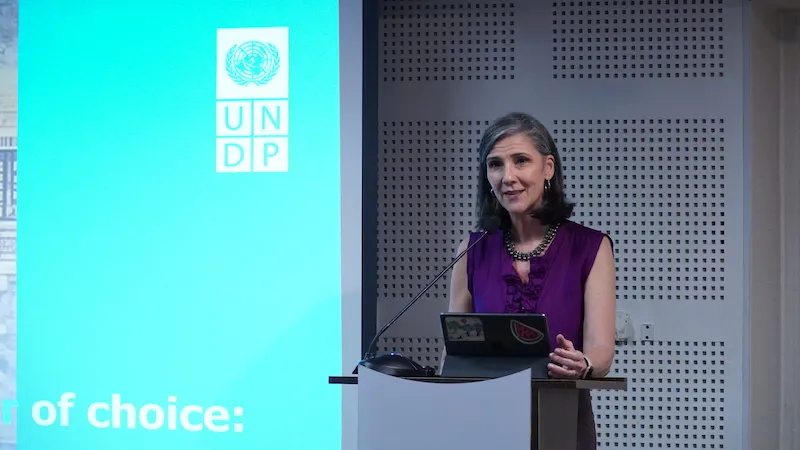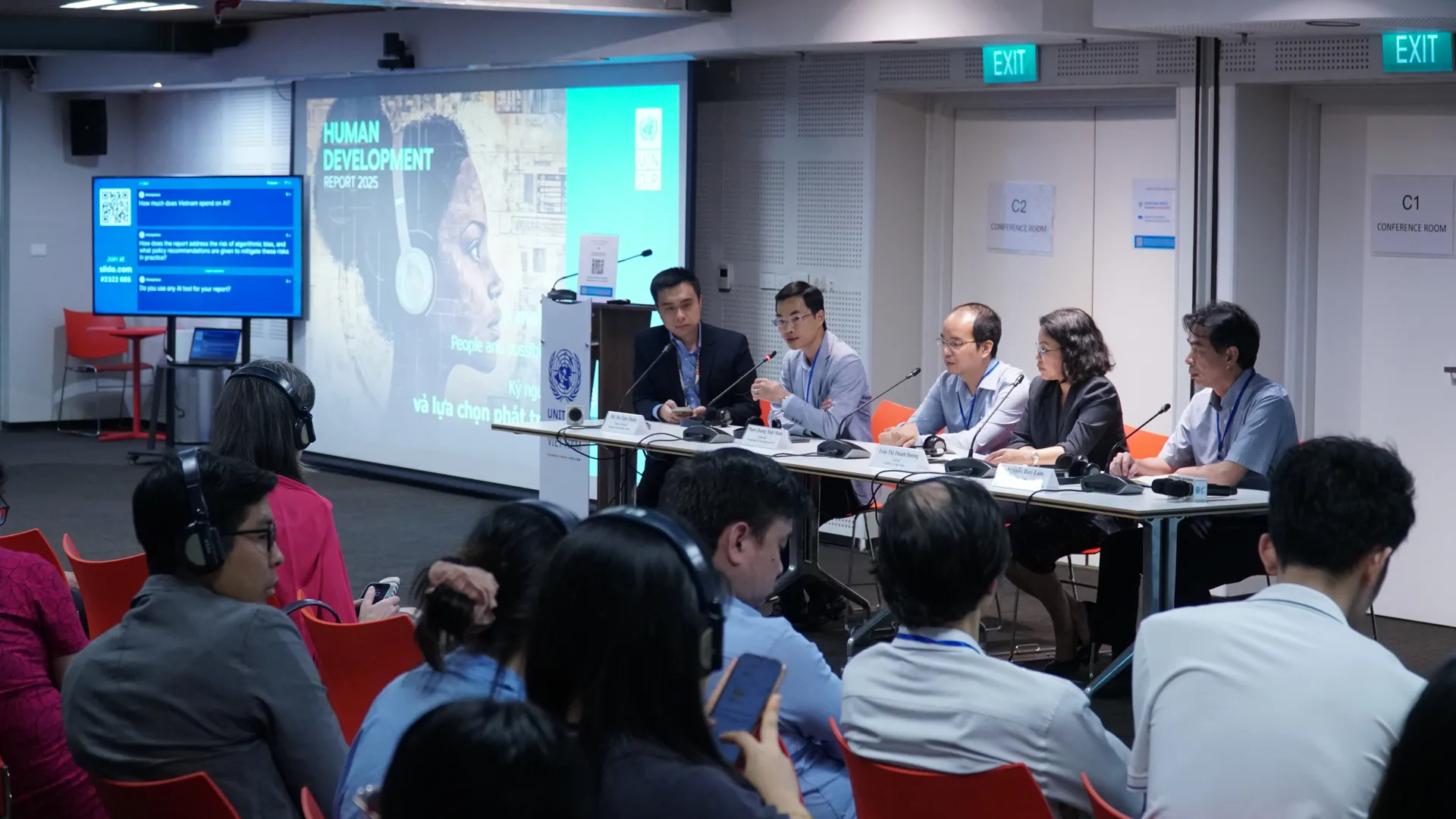Vietnam achieves high human development rank in 2025 HDI Report
The launch of the 2025 Human Development Report spotlighted how artificial intelligence can serve as a catalyst for human development in line with Vietnam’s digital transformation strategy and global sustainability goals.
Vietnam scored 0.766 on the 2023 Human Development Index (HDI), placing it in the group of countries with high human development and ranking 93 out of 193 globally.
The findings were announced at the launch of the 2025 Human Development Report on May 12 in Hanoi.

Ramla Khalidi, UNDP Resident Representative in Vietnam, speaks at the launch ceremony of the 2025 HDI Report. Photos: UNDP
The HDI is a composite index measuring average achievements in key dimensions of human development including health, education, and levels of income. It serves to emphasize that human well-being and development should be the ultimate indicators of national progress.
From 1990 to 2023, Vietnam’s HDI increased from 0.499 to 0.766, a 53.5% rise that demonstrates the government’s strong commitment to advancing human development. “This reflects Vietnam’s dedication to accelerating progress,” said Do Le Thu Ngoc, Assistant Resident Representative and Head of Inclusive Growth Unit at UNDP Vietnam.
When adjusted for inequality, the HDI for Vietnam dropped to 0.641, representing a 16.3% loss due to disparities in health, education, and income dimensions. This loss was similar to average inequality loss across East Asia and the Pacific.
AI could drive human progress

Delegates discuss about how Al could drive human progress at the meeting.
The 2025 report, titled “A matter of choice: people and possibilities in the age of artificial intelligence (AI)”, provides an in-depth analysis of how Al is reshaping global development. It highlighted the dual nature of AI: the potential to amplify human capability and innovation, and the risks of widening inequality, eroding trust, and marginalizing vulnerable groups if deployed unethically.
As the world continues to recover from the Covid-19 pandemic, AI offers a breakthrough opportunity to accelerate human progress. When deployed ethically, AI can improve education, healthcare, and economic systems, empowering individuals, closing digital divides, and ensuring no one is left behind.
Speaking at the event, Ramla Khalidi, UNDP Resident Representative in Vietnam, emphasized the report’s call for governments and societies to shape AI responsibly. “We must encourage the ethical and inclusive use of AI as a path toward sustainable human development,” she said.
She warned that the global divide in AI capabilities is widening and, if unchecked, could deepen global inequalities. “Vietnam must act now to avoid falling behind in this growing AI gap,” she urged. “We need immediate action to ensure AI becomes a force for equity, sustainability, and human progress in Vietnam and in the world.”
Jonathan London, a UNDP research team representative, noted that Vietnam faces both challenges and opportunities in leveraging AI for national prosperity.
He said that ethical and inclusive use of AI should be a top priority. “The issue is not just technological, it is about regulations and policies that allow Vietnam to harness AI effectively,” London explained.
He added that AI could boost productivity across sectors and support a more inclusive economy, particularly as the country enters an era of population aging.
The 2025 report drew on a global survey of 21,000 people across 36 countries and territories, revealing generally optimistic views on the impact and usefulness of AI. Usage of AI in education, healthcare, and the workplace is rapidly increasing. However, not all communities benefit equally from these technologies.
To address these challenges, the report outlines three key recommendations: First, build a complementary economy that prioritizes human potential over AI replacement. Second, foster purposeful innovation that advances science and technology through AI. Third, invest in critical capabilities by leveraging AI to personalize education and healthcare, while addressing risks related to bias, privacy, affordability, and fairness.











